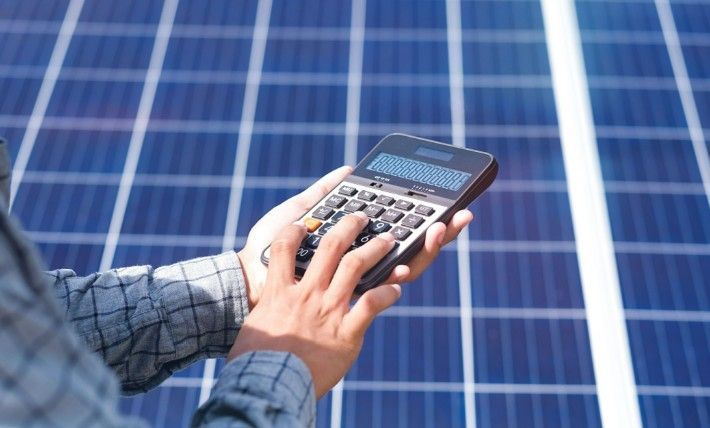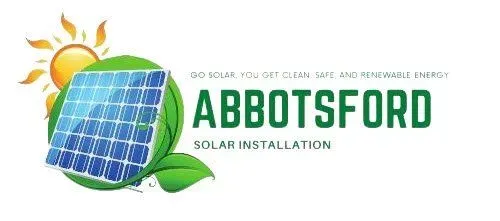Abbotsford Solar Installation
The Best Solar Providers May Offer Flexible Financing If You Have Bad Credit
Worried about your credit score when thinking about going solar? Many of the best solar providers offer flexible financing, even with bad credit.
Learn how a solar panel installation company works with poor financial scores, funding options, and incentives that make it more affordable.
Key Takeaways:
- Extended payment terms, lower rates, and no-credit-check options make renewable power accessible even to those with poor borrowing scores.
- Lenders also consider income, homeownership, and utility bill payment history.
- Funding helps reduce electric costs, providing a solid return on investment over time.
Why Financing for Green Energy Matters
Installing solar panels can be expensive, from $10,000 to $30,000 for a complete setup, including installation. While panels have dropped by 70% over the last decade, many still can’t afford to pay the full price upfront.
Funding helps spread the expense over time so more people can switch. Homeowners can save bills over the system's life, normally 25 to 30 years. Going green can save homeowners $20,000 in electric costs over 20 years.
The Challenge of Poor Credits
Getting a traditional loan can be tough for people with bad borrowing score. A report shows that 16% of adults have a score below 670, considered subprime. Without good points, many can't access affordable loans or lines of credit, and those who do face higher interest rates.
Even though many want to, bad financial trust can keep homeowners from investing in solar energy solutions. Another report says 36% of homeowners said they would install solar panel systems if they could afford it or had access to better funding options.
Finding grants is harder for those with poor financial trust, who miss out on the chance to save on bills.
What Makes Financing Flexible for Those with Bad Financial Trust?
It can be tough to get financing when you have a history of financial missteps. But don't worry—it's not impossible. There are options available for those with less-than-perfect credit.
Loan Terms and Conditions
- Longer Payment Periods. Grants with extended payment periods (e.g., 10, 15, or 20 years) help reduce monthly payments. Instead of paying the full upfront, you spread the cost.
- Lower Interest Rates. Homeowners pay less over time and have more manageable monthly payments, even with bad monetary trust.
- Deferred Payments. Some allow you to defer payments for a few months or even a year. This gives you time to save before paying for the system.
No Credit Check Financing
Unlike traditional loans, these loans don’t focus on your score. Instead, lenders consider your homeownership and income, which means you might qualify for a loan even with poor financial trust.
Lenders might focus on:
- How long you’ve owned your home
- Your home’s equity
- Your income
- This gives homeowners access to grants based on their financial stability and homeownership rather than their borrowing capacity history.
Alternative Models
These alternatives don’t rely on scores:
Solar Installation Leases
You rent solar power instead of buying it, which means little to no upfront costs. You pay a monthly fee while the leasing company manages maintenance. You get the benefit of lower bills without owning the system.
Power Purchase Agreements (PPAs)
You buy the electricity produced by the system at a fixed price per kilowatt-hour. PPAs let you access green power without upfront costs and avoid the responsibility of system ownership.
Community Solar Systems
This lets you share solar energy systems with others in your community. You buy a share in a local sun-powered farm and receive credit on your utility bill for the power produced. This is a great option for renters or homeowners without suitable roofs for solar installation.
How to Qualify for Flexible Funding with Bad Borrowing Capacity
Your score is important when applying for flexible grants, but it’s not the only factor. Many providers are willing to work with homeowners with no borrowing capacity.
- Some providers accept scores as low as 550-600 for flexible options. Traditional loans require a minimum score of 650, but flexible grants are more lenient. If your score is lower, some providers may still approve you based on other strengths.
Providers understand that scores don’t always reflect financial reliability. That’s why they offer options to homeowners who want to go green.
Other Qualifications
Providers also look at other important factors to decide whether you qualify for funding.
| Qualification | What Lenders Look For | Why It Matters |
|---|---|---|
| Stable Income | Stable Income Regular income from your job or other sources. Shows you can make payments, even with no borrowing capacity. | Shows you can make payments, even with no borrowing capacity. |
| Homeownership | Owning your home or having equity in it. | Increases approval chances and shows financial stability. |
| Utility Payment History | Paying utility bills on time (electricity, water, etc.). | Utility Payment History Paying utility bills on time (electricity, water, etc.). Proves you can handle monthly payments. |
Documents You’ll Need
These documents give lenders the information they need to see whether you can afford the loan.
- Lenders may ask for pay stubs or bank statements to confirm your steady income.
- You may need to provide tax returns from the last 1-2 years. This helps lenders confirm your income matches other documents.
- Providing your utility bills shows that you’ve been responsible for paying for electricity in the past.
- You might need to prove that you own your home. A mortgage statement or property deed can help.
How Flexible Funding Helps You Save Money Long-Term
Although loans accrue interest, they allow you to acquire necessary renewable energy sources without a large upfront investment.
Lower Electricity Bills
Sunlight-based power can drastically cut your monthly electricity bills.
- Generate your electricity. Generate electricity from sunlight, so you don’t need to rely on your utility company as much.
- Reduce costs. Using sun-based power lowers the electricity you buy from the grid, which can be especially helpful if your utility rates are high.
- Funding makes it easier. You don’t need to pay the full installation cost upfront with flexible funding. You can start saving right away while paying off over time.
Return on Investment (ROI)
- Payback over time. The savings from your lower electricity bills can offset the cost of the system. While the upfront cost might seem high, the system pays for itself and starts saving you money.
- Long-term savings. On average, homeowners see a return on investment within 5-10 years, and the savings continue long after that.
Federal Incentives and Rebates
You can lower your installation costs with government incentives:
- Federal Investment Tax Credit (ITC): You can get up to 30% of the installation cost as a tax credit. This reduces your overall cost.
- Local incentives: Some provinces and local governments also offer rebates to make renewable sources more affordable.
Things to Consider Before Choosing a Plan
Before committing to a plan, consider these important factors to guarantee it’s the right choice.
| Factor | Key Points |
|---|---|
| Total Cost of Ownership | Compare interest rates (low or 0% vs. higher rates). - Watch for hidden fees (e.g., maintenance, early payment). - Compare the overall cost of financing vs. paying upfront. |
| Long-Term Commitment | Long-Term Commitment - Longer terms mean smaller monthly payments but may cost more in interest. - Certify that the equipment is durable and comes with warranties - Choose a provider with good customer support. |
| Compare Multiple Providers | Check different options, interest rates, and incentives. - Read the fine print. - Review customer feedback to find a trusted provider. |

Don’t Let Bad Credit Dim Your Green Energy Dreams
Even with poor borrowing capacity, you can switch to renewable energy. Many solar installers offer flexible funding with longer payment terms, lower interest rates, and no credit checks to make it more affordable. They focus on your income, homeownership, and utility payment history, so bad financial trust doesn’t stop you from getting it.
Renewable energy solutions help you save on bills over time. Start exploring your options today to cut costs and support a cleaner environment.
Frequently Asked Questions
What happens if my solar power system is damaged while under financing?
If your solar PV system is damaged while under grants, the warranty covers repairs for defects. Solar energy companies generally provide repair services irrespective of the customer's payment plan. However, you might be responsible for the costs if the damage is due to misuse. Review your warranty and agreement to determine whether it includes insurance or if you need to obtain separate coverage.
Can I get financing if I’m a renter instead of a homeowner?Can I get financing if I’m a renter instead of a homeowner?
Yes, renters can get financing through options like community programs or leases. In a community solar array, you share a local source and get credits for your utility bill. With leases, you rent the system and pay a monthly fee for the energy it generates. These options don't require homeownership.
Can I do a DIY installation to save money?
Installing yourself might seem like a good way to save money by avoiding labour costs. The solar panel industry does not recommend DIY as it is risky.
Working with electricity on a roof is dangerous and best left to professionals. The permitting and grid connection process can be complex and frustrating, and some utility companies may not even allow DIY connections.
DIY installations may disqualify you from certain incentives, void equipment warranties, and even impact your roofing warranty. Unless you're highly experienced, the risks of DIY installation likely outweigh the savings.
Go Solar. You get Clean, Safe, and Renewable Energy.

CONTACT US
36092B Regal Pkwy, Abbotsford, BC
V3G 1L1, Canada
USEFUL LINKS
Book a Service
We will get back to you as soon as possible.
Please try again later.
All Rights Reserved | Abbotsford Solar Installation |